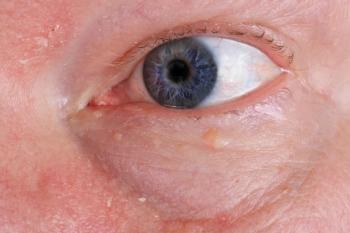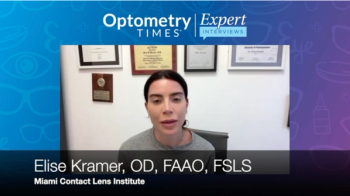
Study: Long-term daily multivitamin use decreases cataract risk in men
Long-term daily multivitamin supplement use may lower cataract risk in men, according to a study of nearly 15,000 male physicians published in Ophthalmology.
San Francisco, CA-Long-term daily multivitamin supplement use may lower cataract risk in men, according to
Researchers at Brigham and Women's Hospital and Harvard Medical School-as part of the Physicians' Health Study II (PHS II)- conducted a randomized, double-blind study from 1997 to 2011 of 14,641 US male doctors age 50 and older. Half took a common daily multivitamin, as well as vitamin C, vitamin E, and beta carotene supplements. The other half took a placebo. The researchers followed the participants to identify how many participants in each group developed new cases of 2 common eye diseases: cataract and age-related macular degeneration (AMD).
The researchers found that in the placebo group 945 cases of cataract developed, which were self-reported and confirmed by medical records, while only 872 cases of cataract developed in the multivitamin group, representing a 9% decrease in risk. This risk was even lower, at 13%, for nuclear cataract.
In terms of AMD risk, the researchers found there were 152 new cases of visually significant (best corrected visual acuity of 20/30 or worse) AMD in the multivitamin group compared to 129 in the placebo group, but the difference was not statistically significant. While this finding may seem to contradict results of other studies, such as Age-Related Eye Disease Study (AREDS), the researchers note that the studies had different nutrient supplements, dosing, and objectives. AREDS included daily zinc and a high-dose antioxidant combination of vitamin E, vitamin C, and beta carotene, whereas the multivitamin in PHS II included these nutrients and many others.
All the nutrients were provided to the PHSII participants at the US Recommended Dietary Allowance dose levels, which are much lower than the AREDS supplements. Furthermore, the objective in AREDS was to prevent AMD progression among persons who already had the disease, whereas the objective of PHS II was to prevent new cases of AMD, and thus persons with a diagnosis of AMD at baseline were not included.
“This finding of more cases of AMD in the multivitamin group than in the placebo group, although not statistically significant, does raise some concerns,” says William Christen, ScD, the study's lead author and researcher from Harvard Medical School. “Clearly, this finding needs to be examined further in other trials of multivitamin supplements in both men and women.”
Newsletter
Want more insights like this? Subscribe to Optometry Times and get clinical pearls and practice tips delivered straight to your inbox.













































